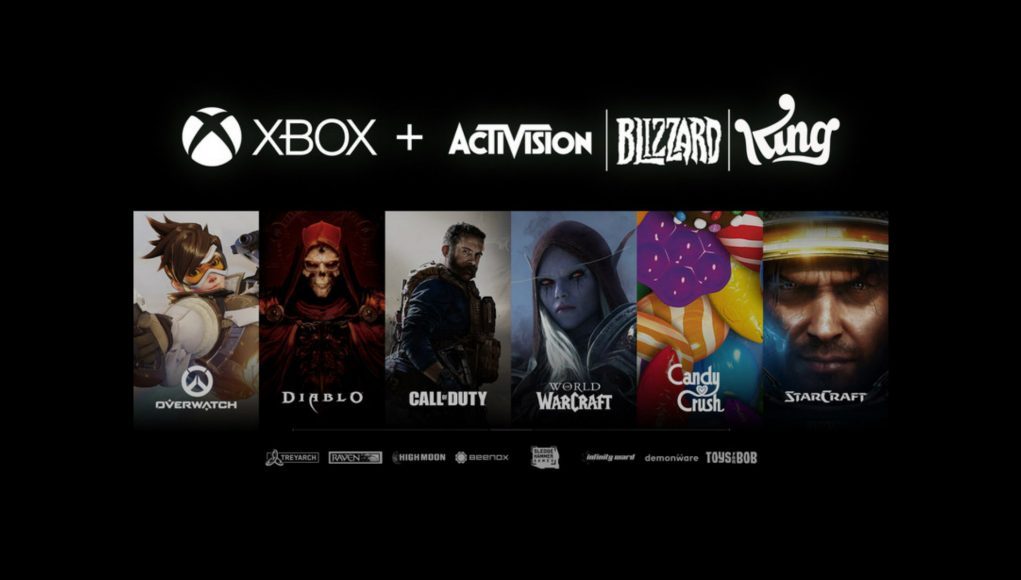Microsoft announced it’s planning to acquire Activision Blizzard for $68.7 billion, making it the largest gaming acquisition to date. Microsoft CEO Satya Nadella says the studio will play a key role in the development of its future metaverse platforms.
Microsoft seems to be gradually absorbing some of gaming’s most influential companies in an apparent bid to solidify its position in a market that’s rapidly changing to focus on immersion and interoperability between virtual worlds—what some have dubbed ‘the metaverse’.
Once the Activison Blizzard deal goes through—expected to happen sometime in 2023—it will mean Microsoft not only owns iconic titles such as Call of Duty, Overwatch, World of Warcraft, Diablo and Candy Crush, but it will become the world’s third-largest gaming company by revenue, following Tencent and Sony.
The company says Bobby Kotick will continue to serve as CEO of Activision Blizzard, however the soon-to-be subsidiary will eventually report to Phil Spencer, CEO of Microsoft Gaming.
Like with Meta (formerly Facebook), plans to create its version of the metaverse have remained fairly nebulous—par for the course since the concept of ‘the metaverse’ was co-opted to mean any virtual world, a summation of virtual worlds, or a monolithic virtual platform (metaverse with a capital ‘M’). It seems Microsoft is speaking about supporting “any metaverse” in a much broader sense here:
“Gaming is the most dynamic and exciting category in entertainment across all platforms today and will play a key role in the development of metaverse platforms,” said Microsoft CEO Satya Nadella in a press statement. “When we think about our vision for what a Metaverse can be, we believe there won’t be a single, centralized metaverse. It shouldn’t be. We need to support many metaverse platforms as well as a robust ecosystem of content commerce and applications.”
What is concrete however is company’s VR strategy, or lack thereof. Microsoft, vis-à-vis Xbox, has lagged far behind competitors Sony and Meta, both of which have developed their own VR gaming ecosystems and platform-exclusive hardware. Xbox doesn’t feature any form of official VR compatibility, not even with its range of Microsoft Mixed Reality headsets.
Still, Spencer told Protocol last month he wants Xbox’s metaverse strategy to extend to all “any screen that can render those [games].”
“I want to be able to experience the things I own on any screen that can render those,” Spencer said. “I want to be able to have the experiences I have anywhere. I want to have them with the people I want to experience them with and it requires a lot of cloud infrastructure to make that happen. It requires, like I said, a real open approach.”
It appears Spencer is still very much engrained in traditional platforms when he’s talks about “any screen” however. The Xbox chief says developing VR hardware is still not a focus:
“And you know, I applaud what Sony‘s doing, I applaud what Oculus is doing, what Valve has done,” Spencer said during Wall Street Journal’s WSJ Tech Live event back in October 2021. “I mean, there’s a lot of good players out there that have done some amazing VR work. But yeah, we’re gonna stay as a company right now in the consumer space focused on software, and I think that’s a good bet.”
The Activision deal follows a September 2020 acquisition of gaming powerhouse ZeniMax for $7.5 billion, the parent company of Bethesda Game Studios, id Software, ZeniMax Online Studios, Arkane, MachineGames, Tango Gameworks, Alpha Dog, and Roundhouse Studios.
Activision Blizzard owns Activision Publishing, Blizzard Entertainment, Beenox, Demonware, Digital Legends, High Moon Studios, Infinity Ward, King, Major League Gaming, Radical Entertainment, Raven Software, Sledgehammer Games, Toys for Bob, Treyarch.
Microsoft says it will add many of Activision’s games to Xbox Game Pass and PC Game Pass subscription services.







